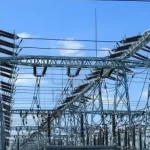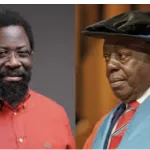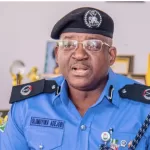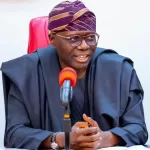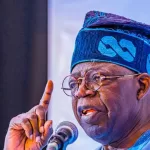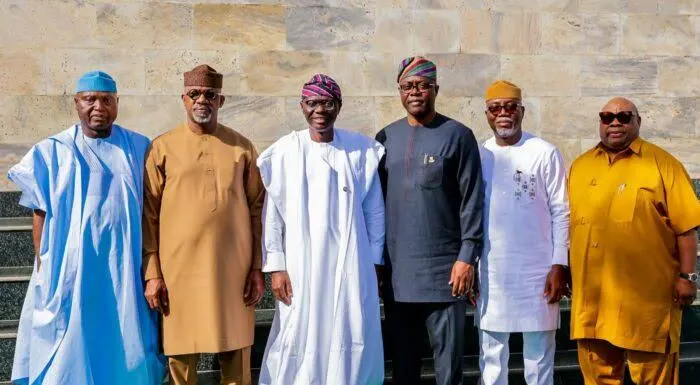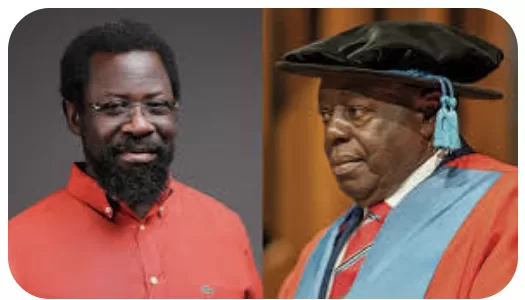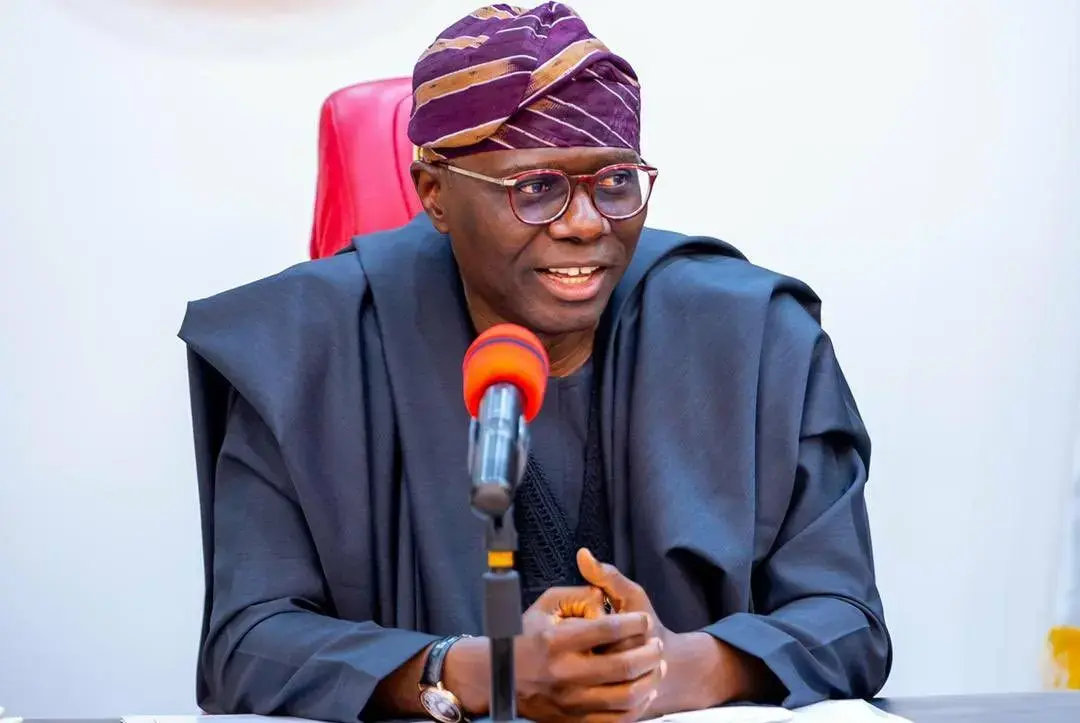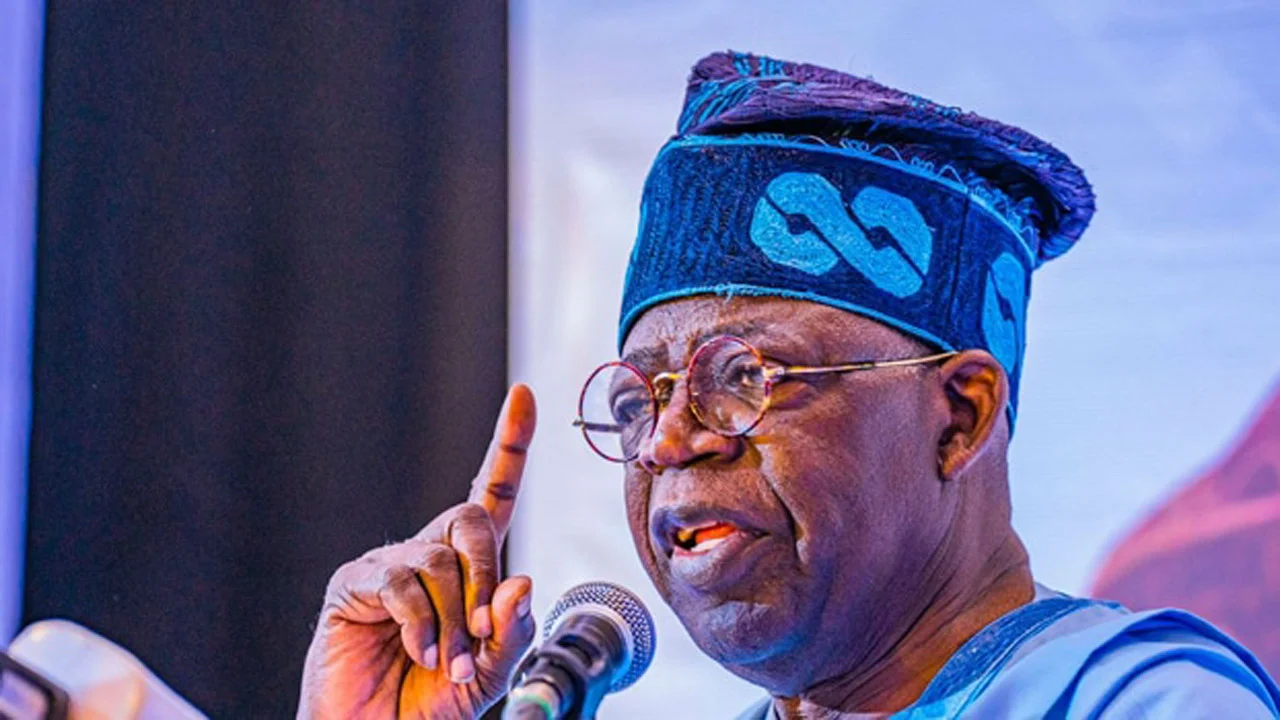Governors Babajide Sanwo-Olu (Lagos), Lucky Aiyedatiwa (Ondo), Dapo Abiodun (Ogun), Seyi Makinde (Oyo), Ademola Adeleke (Osun), and Biodun Oyebanji (Ekiti) attended the meeting. At the meeting, the governors unanimously and officially adopted the Ic¹Ì wà fùñ Il¹ wá song as the Yoruba anthem.
The adoption of the new Yoruba anthem has continued to generate reactions from stakeholders in the region. While some see it as a misplaced priority, others see it as a good step towards the realisation of the regional government, which the South-West has been in the forefront .
The former chairman, Trade Union Congress, TUC, Ekiti State chapter, Mr Kolawole Olaiya described the new regional anthem as a misplaced priority, adding that the South-West governors should prioritize the welfare and security of the citizens by coming up with an acceptable new minimum wage.
Olaiya said: “No matter any form of anthem – national or whatever, that is not the problem of Nigeria.
“The problem of Nigeria is the welfare and security of the citizens. The regional anthem or national anthem is not what Nigeria wants but welfare and security.
They should give workers robust welfare in the form of salary increase or increased minimum wage.
“People are living in poverty, there is a food crisis, fuel crisis, and there can’t be unity without the welfare of the people. I want the governors to consider their workers and citizens for better welfare. I want them to consider the present minimum wage; they should align with the Federal Government’s position.
“They should forget about the anthem, it’s not what’s supposed to be the focus, the focus should be the welfare of the people and not engaging in frivolous issues.
“National and regional anthems cannot feed us, they should resolve the issue of poverty.”
The Pan-Yoruba socio-political organisation, Afenifere, said that the adoption of the anthem “signifies a resolve by South-West governments that our region will be marching forward with unity of purpose.”
Afenifere’s National Publicity Secretary, Jare Ajayi, commended the governors for having a good sense of history as he recalled that the anthem was composed by the defunct Unity Party of Nigeria, UPN, under the leadership of late Chief Obafemi Awolowo.
Indeed, it was Chief Awolowo who composed the anthem and asked Chief Hubert Ogunde, the renowned artiste, to give the anthem a melody. Ogun State Government, under the late Chief Olabisi Onabanjo, adopted the anthem. Osun State did the same when Ogbeni Rauf Aregbesola was governor.
“Late Arakunrin Rotimi Akeredolu followed suit by adopting it for Ondo State. This, however, was the first time that all governments in the South- West Region would adopt a common anthem. The uniqueness of the anthem is not only in the exhortative words it contains but also in the fact that it is in the native language of the people, Yoruba.”
Ajayi further urged the governors to ensure that the anthem is learnt and recited by students in all Yoruba-speaking areas and beyond.
Also speaking, an Afenifere chieftain, Mr Kole Omololu said: “This is the happiest moment in Yoruba history. This anthem was written by Chief Obafemi Awolowo and composed by Chief Hubert Ogunde for UPN/Afenifere in the early 80s.
“Since then, Afenifere must sing it at any gathering. Yoruba Tennis Club in Lagos also adopted it as their anthem. The anthem depicts us as a nation within Nigeria which we were before we were clubbed together in 1914 by the colonial powers.
Yoruba is part of world history, we are found in several countries of the world – Togo, Benin Ghana and the Gambia in West Africa.
“It is an inspiration for the Yoruba race, and inspiration for pride, uniqueness and for unity. “It also reminds us of our common values and ethos of Omoluabi (special breed).
When contacted, the Convener of the Yoruba Commitment Forum, YCF, Otunba Tayo Onayemi said the Yoruba anthem was not the initiative of the South-West governors, but that of the Afenifere.
Onayemi said: “The governors only gave assent and voice to an anthem that has been there for Yoruba for almost 60 years. Afenifere wrote it under our late sage, Papa Obafemi Awolowo and as a national caucus member, I know that we always sang it at the beginning of our meeting.
“The adoption is a welcome development and I commend the political and cultural tact of the governors of Yorubaland for their patriotic decision.
The wording of the anthem, the lyrics and rhymthical delivery is superb and it calls to reason that all Yoruba, apart from the governors, are called to attention, hardwork and patriotism while not forgetting the position of the race to lift the African flag aloft.
“The anthem is a call to unity, fairness and equity, the bastion of progressiveness of the Yoruba race, kudos to the governors of the South-West.”
Also speaking, the Publicity Secretary of the Peoples Democratic Party, PDP, in Ondo State, Mr Kennedy Peretei said the South-West in recent times has been subtly pushing for a return to regional government. This step may be geared towards its realisation.
“If we compare the progress the country made between 1960 and 1967 before Gowon abolished the regional governments, till date, you will discover that we have retrogressed.
“It is not the case that there was no corruption but there was healthy competition between among the regions.
What we have now is competition to take control of the oil resources from the Niger-Delta as if other regions have nothing.”
While describing the anthem as defective to be adopted by the region, a socio-cultural group, Dee Osun Monitors stressed the need for amending some lyrics. The group’s coordinator, Prince Jide Akinyooye, said the phrase ‘Omo Oodua’ should be replaced with ‘Omo Yoruba’, saying not all Yoruba are descendants of Oduduwa. Akinyooye said: “We commend the initiative of all South-West governors who can best be described as patriotic.
“We would like to call the attention of all concerned stakeholders on the need to immediately correct the deficient part that warrants substituting the word “Oodua” with “Yoruba”. This is because not all Yorubas have blood relation with Oduduwa and it will be unfair and incorrect not to recognise others that are major part of Yoruba.
For clarity sake; there are Obatala descendants, Oduduwa descendants and Oran’fe descendants and all of them are well established in Ile-Ife up till now. Their children also cut across the whole land of Yoruba with different towns and their Obas.
“For confirmation we encourage interested people to visit Obalesun at Obatala Temple, who is the Arole Obatala and Obaluru at Oran’fe temple who is Arole Oran’fe on these facts.”

